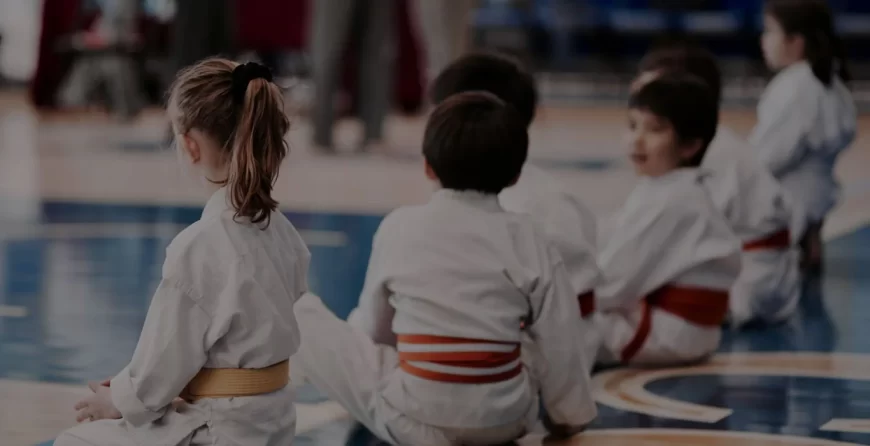
In the bustling urban landscape of New York City, where the need for personal safety and self-improvement is paramount, the search for effective martial arts classes has become a priority for many. Aikido, renowned for its philosophy of non-violence and self-defense, stands out as an appealing choice for individuals seeking physical fitness, mental resilience, and practical self-defense skills. This comprehensive guide explores the world of Aikido and self-defense martial arts classes in NYC, providing insights into their principles, benefits, and the array of training options available.
Understanding Aikido:
Aikido, translated as “the way of harmony with the spirit,” is a Japanese martial art developed by Morihei Ueshiba in the early 20th century. Unlike many other martial arts that focus on aggressive attacks, Aikido emphasizes blending with an opponent’s movements and redirecting their energy. The core principles of Aikido include harmony, circular motion, and the use of an opponent’s force against them. Techniques involve joint locks and throws, making Aikido an art of self-defense rather than aggression.
The Unspoken Path to Aikido Mastery:
In a city teeming with options, finding the right Aikido class requires a discerning eye. Look for dojos that align with your goals and values, offering a balance between traditional teachings and practical applications. Personal recommendations and word of mouth often lead enthusiasts to hidden gems that may not be widely known but offer a rich and authentic Aikido experience.
Benefits of Aikido Training:
- Self-Defense: Aikido techniques are designed to neutralize aggression without causing undue harm to the attacker. This makes it an ideal choice for individuals seeking practical self-defense skills in the urban environment of NYC.
- Physical Fitness: Aikido training provides a full-body workout, enhancing strength, flexibility, and cardiovascular health. The dynamic movements and emphasis on fluidity contribute to improved overall physical fitness.
- Mental Resilience: Aikido promotes mental resilience through its philosophy of harmony and non-resistance. Practitioners learn to stay calm under pressure, fostering a sense of mindfulness and emotional control.
- Balance and Coordination: The intricate footwork and precise movements in Aikido enhance balance and coordination, skills that are valuable not only in martial arts but also in everyday activities.
Aikido, Self-Defense, and Martial Arts Classes in NYC: Things to Consider
When searching for Aikido, self-defense, and martial arts classes in the dynamic city of New York, it’s crucial to consider various factors to ensure that the chosen training aligns with your goals and preferences. Here are key considerations to keep in mind:
- Discipline and Philosophy: Understand the philosophy and principles of the martial arts discipline you are interested in (e.g., Aikido, Krav Maga, Brazilian Jiu-Jitsu). Ensure that the underlying principles resonate with your personal values.
- Instructor Credentials: Research the instructors’ credentials and experience. Look for certified instructors with a proven track record in their respective martial arts. Inquire about their training lineage and any notable achievements.
- Training Facilities: Visit the training facilities or dojos to assess cleanliness, safety, and overall atmosphere. A well-maintained and adequately equipped space is essential for effective and enjoyable training.
- Class Schedule and Location: Consider the class schedule and location in relation to your daily routine. Choose a school that offers convenient class times and is accessible from your home or workplace to ensure consistency in attendance.
- Class Structure: Understand the class structure, including warm-up routines, skill drills, and sparring or practical application sessions. A well-rounded class structure contributes to a comprehensive learning experience.
- Level of Intensity: Different martial arts have varying levels of intensity. Consider your fitness level and preferences regarding physical exertion. Some arts, like Brazilian Jiu-Jitsu, involve ground fighting and grappling, while others, like Aikido, focus on redirection and joint locks.
- Trial Classes or Introductory Period: Many reputable martial arts schools offer trial classes or introductory periods. Take advantage of these opportunities to experience the training firsthand and assess whether the teaching style and environment suit your needs.
- Community and Atmosphere: Assess the community and atmosphere within the school. A supportive and respectful training environment is crucial for personal growth. Consider joining a martial arts community that aligns with your values.
- Cost and Membership Fees: Understand the cost structure, including membership fees, testing fees, and any additional costs for uniforms or equipment. Ensure that the financial commitment aligns with your budget.
- Safety Measures: Inquire about safety measures and protocols in place during training. A focus on safety, proper supervision, and the availability of first aid resources is essential, especially in disciplines that involve physical contact.
- Class Size and Student-to-Instructor Ratio: Consider the class size and student-to-instructor ratio. Smaller class sizes often allow for more personalized attention, facilitating a better learning experience.
- Progression and Ranking System: Understand the progression and ranking system within the martial art. Many disciplines have a belt system or equivalent ranking. Clarify the criteria for advancement and how frequently testing occurs.
- Reviews and Recommendations: Seek reviews and recommendations from current or former students. Online platforms, social media, and word of mouth can provide valuable insights into the reputation and quality of a martial arts school.
By carefully considering these factors, you can make an informed decision when choosing Aikido, self-defense, or martial arts classes in NYC. Remember that the right fit goes beyond physical training; it encompasses a supportive community and an environment conducive to personal growth and learning.
Conclusion:
In the vibrant and diverse city of New York, Aikido and various self-defense martial arts classes provide individuals with a path to personal empowerment, physical well-being, and practical skills for navigating the challenges of urban life. Whether one is drawn to the philosophical principles of Aikido or the practicality of Krav Maga, the wealth of options in NYC ensures that individuals can find a martial arts discipline that aligns with their goals and values. Embarking on this journey not only enhances self-defense capabilities but also fosters a sense of discipline, mental resilience, and community spirit in the heart of the city that never sleeps.
